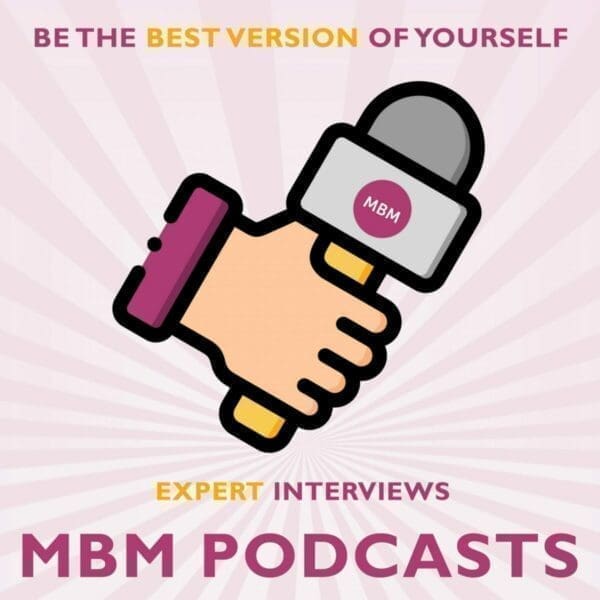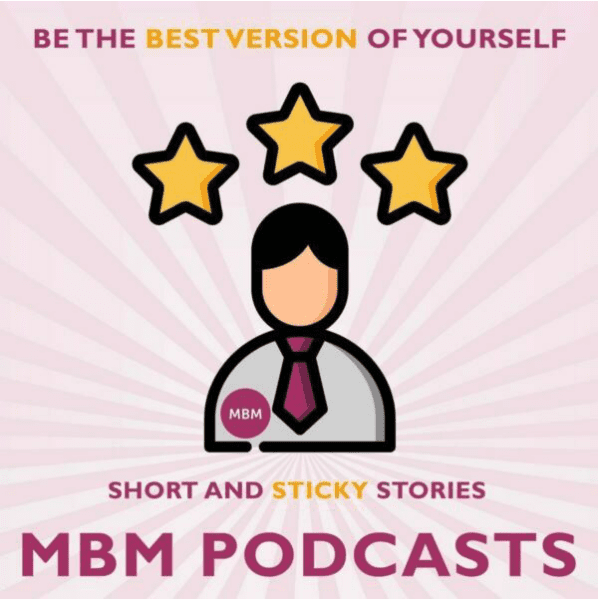Podcast: Play in new window | Download
E8 – Email Writing Is Not like DIY! We Simply Can’t Be Bad at It
Unfortunately, email writing isn’t like DIY. We have to be good at it. We can’t put it off or avoid it altogether. Also, we can’t just pay someone with better tools and skills to do it for us.
Each person receives about 87 of them a day. Emails are, therefore, a huge part of our working lives. We spend hours each day trawling through our inboxes. They are an essential tool. Yet, we were never really trained on how to use them. Listen to our latest Short and Sticky podcasts to learn some practical email writing tips to help you improve your email effectiveness.
Read the Transcript Below:
“I’d like to tell you a sticky story about a house alarm and how I think that relates to your emails. My name is Darren Smith and you’re at the home of sticky learning. MBM, Making Business Matter trainers to the UK grocery industry. My name is Darren Smith. I worked in corporate for a very long time for one of the big supermarkets and then about 16 years ago I set up founded MBM, we do soft skills training.”
“Many years ago we lived in a house when we were a young family and we decided that we needed a house alarm. There weren’t any particular burglaries in the area, but we wanted to be safe so we didn’t get a guy in or we didn’t get one professionally fitted. I thought I’m in my early thirties I can do this. I should be able to do it yet, I know that my DIY skills are poor.”
The Alarm…

“Anyway, we move on. We bought a Yale alarm. Imagine a great big box turning up a few days later. Rip the lid off. It’s about the size of the kitchen table and it’s full of this house alarm from PIR detectors to the great big yellow box that goes on the front of the house that says Yale, hopefully, to deter any would-be burglars.”
“So I get up one Saturday morning and I know in the back of my mind that DIY is not my thing, but I’m quite determined and I’m motivated to sort this because I think I can. So I spend too long figuring out how to put this alarm together and getting it to work with the house. And you can imagine there’s me with a step ladder, a ladder, a drill, screws. It’s awful. The drill is probably 10, 15 years old. I still got it now.”
“The drill bits are broken, the screwdrivers are blunt. They are not the tools of a professional work person. So I’m there outside the house and the step ladder and the ladder won’t reach high enough to put this box where I wanted it to go at the top of the wall. But I’ve got one foot on the top of the ladder and I’m sort of dangling, hanging onto the window seal with my left hand and in my right hand I’ve got the drill held up as far as I can above my head about another three feet and I’m trying to drill the holes to put this alarm on.”
“I’ve done some of the other bits I’ve done the wiring and wireless wasn’t a thing back then and it’s taken me ages. I am hating the job. So I started at about nine o’clock and it’s probably now 7:00 PM”.
Terrible at DIY
“My wife is ‘Why is this taking so long?’ Well at the heart of it, what I didn’t want to tell her is, I’m rubbish with this, but I persist being quite motivated and driven. We finish, it’s dark. I’ve had enough. The stress was immense. I put the tools away. I’ve got a few spare bits from the Yale box left, which I’m sure ought to go somewhere, but the thing works, that night I have a few beers. I sort of half celebrate, but I know it’s not a great job done.”
“I should’ve got someone in but we couldn’t afford it and we go to bed. We’ve got one young child at the time. Then about how past one in the morning, this noise goes off and it is excruciating. I leap out of bed. My young daughter wakes up. She’s screaming, running around the house trying to figure out what it is, but of course, it’s the alarm.”
“I put some jeans on, I run downstairs. How do I get this thing off? The keypad doesn’t work. Nothing seems to work to fix this thing. I go outside, “Oh, it must be the yellow box on the wall.” I get the step ladder and the ladder. Then, I put it up against the wall and I reach for the yellow box, but of course, I can’t reach it. So, I run in, the alarm is still excruciating. The neighbours are now awake. I come in, grab the broom, go to the top of the ladder and whack the Yale box straight off the wall. All that hard work, the noise continues. I walk back inside the house and say, shout to go. What is going on? The noise is still continuing, but I’ve taken the thing off the wall and then we realize it’s the smoke alarm.”
We Don’t Have the Choice to Be Bad At Writing Emails
“All that work for nothing. Now, I don’t need to be any good at DIY. We can now afford to get someone in to do a few of these things, but, a bad workman blames his tools. I didn’t have the normal tools. I didn’t have the training. Nor the inclination. With email writing, we don’t have a choice. They’re a part of our working life. As any knowledge worker will tell you, they’re either working half their time in their inbox or they’re never out of it. How does this relate to emails? We never were really trained to use emails. Now the tool itself is probably quite good. It hasn’t changed that much in 20 years since it was introduced, but it’s not bad. I think it’s the operator. It’s us, but who can blame us when we were never really trained to use it.”
“Well, I want to share with you just three points that might make us use emails slightly better, make us more effective. If this is a tool that we need to use half or more of our time, then we’ve got to get better at it because it isn’t going to change as a tool. We’ve got to learn to use it better. Unlike DIY, I’ve got a choice. With emails, we haven’t.”
“So, here are my three practical tips of just many that you could use to improve how you operate your email. Number one, and this will sound like a theory out of a business book. What’s your objective? We’re going to move on from that really quickly from what’s your objective to what the hell are you trying to get from the email that you write. Now, I know from the research I’ve read as a time management trainer that people want to vigorously cross stuff off their list and they do that because there’s an endorphin rush.”
What Do You Want to Get When Writing an Email?
“The challenges, they quickly bang off a quick email scribbling off their list, forgetting that it’ll grow arms and legs, particularly the four or five people that are copied in who really shouldn’t reply, but they’re going to anyway because Hey, they’re stuck in their inbox as well.”
“So my first question is what do you want to get from the email? You either want someone to do something, I action this all you want to get some information there. Broadly, the two things you want to give, get from an email. The third one is, I just alluded two is to give some information, but email isn’t always the best format. So you either want to get someone to do something, you either want some information back or you want to communicate something and you wouldn’t be surprised the number of people who don’t know which one they want to do because they’ve just fired off a quick email. Move on to the next task. So what do you want to get from the next email that you write?”
“Aristotle had a great way of putting together speeches. He said, “I’m going to tell you what I’m going to tell you,” then he tells them. And then, at the end of the summary, he tells them what he has already told them. Now that’s speeches and that’s Aristotle with emails. There’s a very good way of figuring out how you know what you want from them by writing it three times. Once in the subject heading, once at the start of the body of the email and once at the end, and I don’t mean repeating it exactly, but I do mean being really clear. I want five slides by Friday. The answer’s this objective. That will be the type of thing that you want to say. The second practical tip is using the subject heading.”
Use the Subject Heading like the Headline of a Newspaper
“Remember each person gets about 87 emails a day and whilst you spend hours possibly crafting a long email, they spent seconds reading it and possibly dismissing it and remember that a lot of emails are opened on mobile devices of course now. So the subject heading is really important rather than meeting.”
“What I’d like you to do is use the subject heading like the headline of a newspaper with credibility. I don’t mean Freddie Starr ate my hamster, which was an amusing The Sun headline some years back. But I do mean meeting Friday leisure expert and inputs, please reply by Thursday. So use the subject heading to really grab the reader’s attention to get them to read your email and do something about it. Either reply with the information that you want or to go and do some action for you. And my third and final practical tip is the layout.”
“No one likes to read a wall of text. It’s hard. You’ve open books in the past and they’re just a wall of texts. They’re not broken up with any white space. They’re not broken up with images. And they’re not broken up with anything bold or paragraphs. That’s what it’s like reading some people’s emails. Don’t give them the excuse not to read it. Make it easy for them. Paragraphs can act like a fog light in deep fog using bold, underlined a few words or a sentence can act as a signpost. White space between paragraphs can just give the reader a breather, particularly if it’s a complex or technical email. Try and help them to help you, get away from needing the endorphin, endorphin rush that comes with just rigorously crossing off your to-do list.”
Final Thoughts
“So in summary, DIY is not my thing. I’ll never be very good at it. My shed of tools is not something to be proud of, but thankfully I have no ego around tools and DIY, I do around cars. DIY, I can find a different solution. I can get someone in to do it, or I can do some of the small jobs or actually my son is starting to get very good at these things.”
“With email writing, we don’t have a choice. There are going to be 50% or more and increasing of a knowledge worker’s work. You’ve got the tool, you need to be able to use it better. So my final question is, when did you last improve the way you use the biggest tool that you use? I’ve given you three tips. There are many, many more, and we run a webinar of 21 mistakes most people make in emails.”
“Thank you for listening.”




